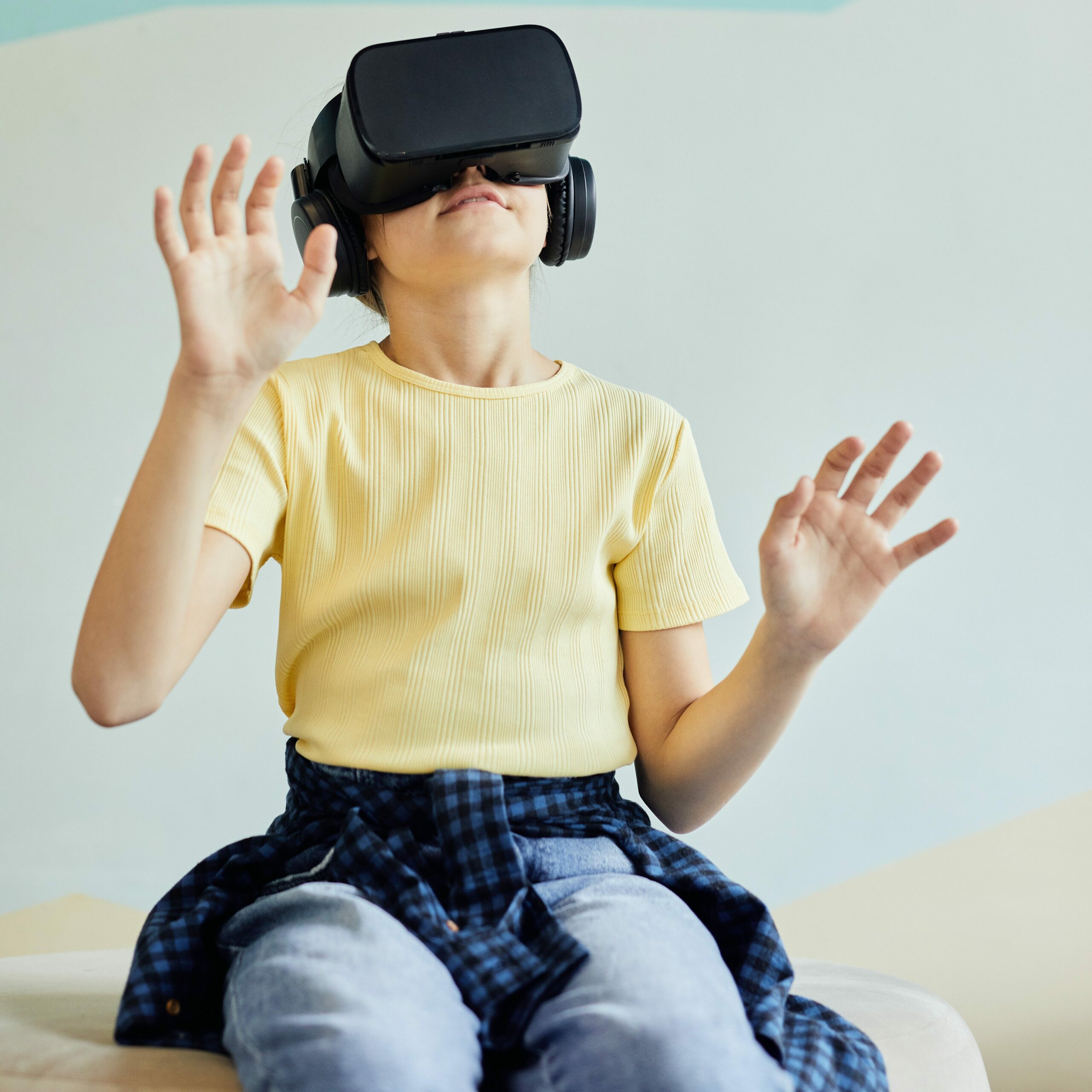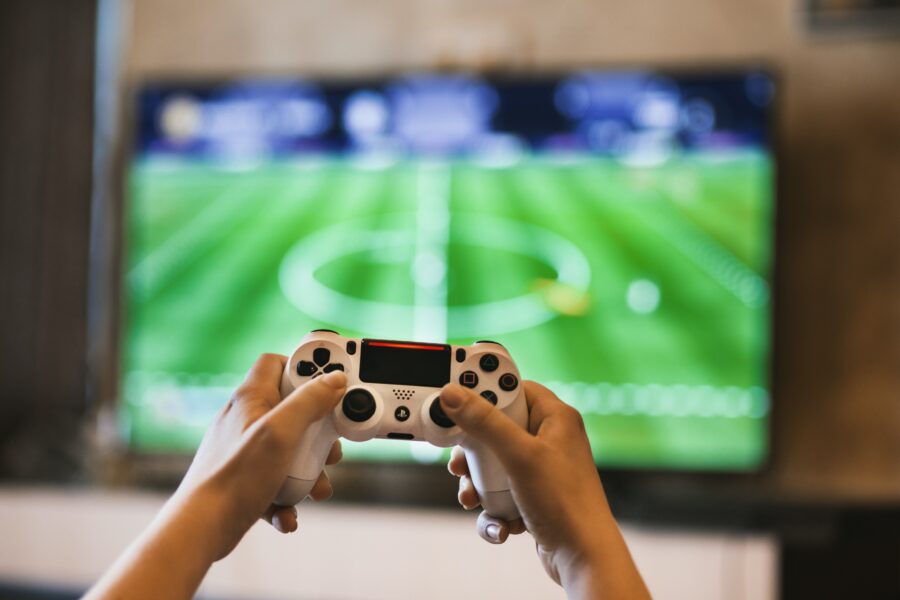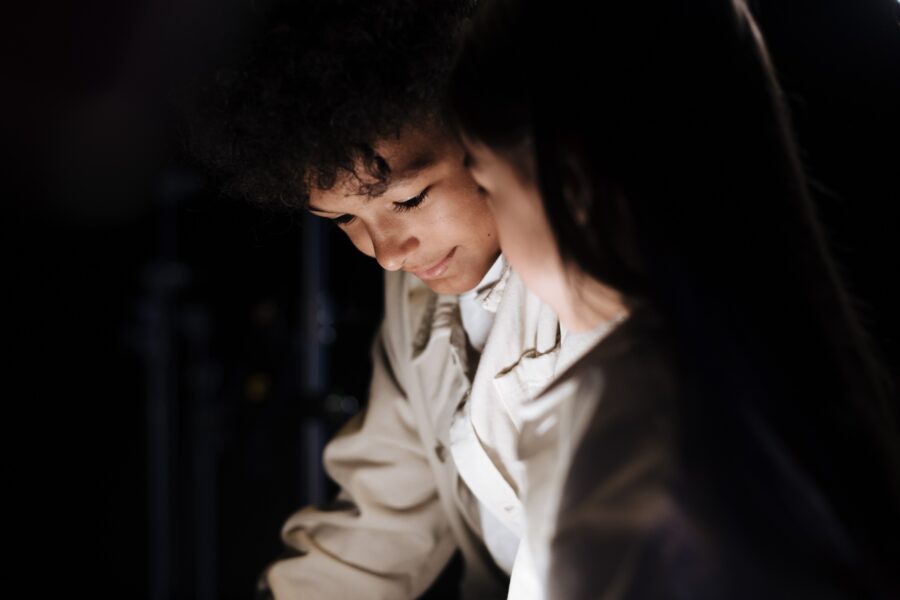The internet has done wonders for us; we can’t imagine a world without it. The world at the tip of our fingers, and connection with others across continents within milliseconds. As adults, it makes our lives easier. Enables us to work more effectively, socialise, connect and educate. For children, it allows them to enter worlds they could only imagine, explore virtual worlds, stay updated with their friend’s adventures and educate themselves, without having to dig out the hefty encyclopedia. But with every positive it delivers, a negative lingers.

Children’s Mental Health Week runs between 6-12th February 2023. It raises awareness of mental health for children and young people. With the rise of social media, and the increase on time spent online by children and young people, it’s important to highlight the impact it is having on children’s mental health and well-being. Sometimes it may feel as though it is out of your control, and there’s little you can do now to stop what your children are exposed to as they bombarded in every aspect of their life. Many use devices for school work and it can be difficult to monitor them effectively.
However, with the rise in mental health issues, and research proving the correlation between time spent online, steps need to be taken, on a collective and an individual basis, to protect the mental health and well-being of children and young people.
Research from the University of Essex and UCL found that the more time children aged 10 spent on social media, the more reduced their well-being was later in adolescence, from ages 10 to 15.
Social media can also further exacerbate anxiety within children and young people. Being compared to people online, can pressure them to always post picture-perfect lives, and exciting content to keep their friends impressed and engaged.
The same study also found that girls were more heavily affected by social media than boys, which researchers suspect is due to young girls being more sensitive to social comparison.
There are ways in which you can monitor social media, and reduce the negative impacts of it within your household, protecting your child’s mental health and well-being.
Talk about social media
Sit down with your child or young person and have a chat about social media and the responsibility of sharing personal information online. Discuss with them how social media makes them feel, whether it makes them feel good or bad about themselves, and how they believe they are benefitting from social media. You can also discuss online safety, cyber-bulling and catfishing.
Having this discussion will help equip them on how to spend time online, and to look out for danger. Also, having an open and honest conversation about how it makes them feel, will help them reassess how it is impacting them and what they share.
Limit usage of social media
Although there is no exact amount of time a child should spend online, too much time spent on social media or gaming can be damaging. Depending on their age, the maximum a young person should would be 2 hours a day. They should be balanced in how they spend their day. Too much time on social media can take away from other aspects of their life such as socialising, school work, sleep and physical activity.

Although it can be difficult to manage, especially with children and young people being more invested in their shows, entertainment, gaming and social media than ever before, limiting their usage can cause frustration on their part. However, implementing time limits, and keeping them occupied with other activities they may enjoy, can help distract them. Often they will enjoy themselves once they get stuck in.
Apps like Facebook, Instagram and YouTube make it easy to track your time online, whether you’re on iOS or Android.
For Facebook, go to More > Settings and privacy > Your time on Facebook.
For Instagram, go to Your account > More > Settings and your activity.
You can set daily reminders telling you how long you’ve been using an app. On Facebook for example, go to Your time on Facebook > Set daily reminder. You can then determine your ideal daily usage.
Some apps can also help you avoid getting distracted by social media, such as Moment, Stay Focused and OFFTIME. Hold rewards you for putting your phone down by giving you ‘pocket points’ which can be exchanged for coffee vouchers and cinema tickets.
Keep bedrooms’ devices free
Once children or young people go to bed, it’s difficult to monitor how late they are staying up, and what they are doing online. If children are getting less sleep, this impacts their school work as they won’t be able to concentrate fully during school hours. Also, not having enough sleep can impact their health, both physical and mental.

If your child is younger than a certain age and has access to iPads, phones, gaming in their room then it would be best to remove it at bed time so they don’t have the option of staying up. If they do have phones, there are options on some which have parental controls which can limit their screen time.
Although teenagers may be less responsive to such an idea, implementing a reward system may be a good incentive. However, also educating them about the importance of sleep, and the implications of not getting enough may further encourage them to get their beauty sleep in!
Validate their feelings
Social media can reduce self-esteem and make children and young people feel insecure. The constant pressure of being compared to others online, picture-perfect, airbrushed and smiling can be emotionally taxing. Teenagers especially are being bombarded with a reality online which is difficult to match.

For many, the online presence they have is very real, as they don’t know a reality without social media. Likes, comments and shares can impact a teenager’s mood dramatically. How they are perceived by their friends, how popular they are and how many followers they have can determine how they feel about themselves. It is important to validate their feelings, and discuss how a comment or photo made them feel. Encourage them to take what is said with a pinch of salt and remind them of their awesomeness!
Create a positive environment
You can help them make their social media a more positive forum, by reviewing their social media feed with them, working out what helps them to feel good and what isn’t. Encourage them to follow accounts that enable them to explore their interests and passions, whilst being beneficial for their well-being, mental health and spirituality. It could also be that their own posts could be affecting how they are feeling so try to create a positive space and follow other people whose accounts and posts uplift you.
If you see that your child is withdrawn, or often sad after spending time on their phone then discuss with them whether they need to reassess who are they following or what is on their feed.. If they are being harassed or upset in any way online, encourage them to block and report the people involved, or at the very least, mute their posts so you will no longer have to see these. Encourage them to use their privacy settings to limit what other people can see on their profiles. If certain friends or accounts are triggering them, then help them remove them and explain the importance of being more aware of who you are following. With Instagram, they can edit their privacy settings to hide any specific words, phrases or emojis they don’t want to see, so that these no longer come up in posts. They can also restrict someone, meaning any comments they leave on your child’s posts will only be visible to them and they won’t be able to see when you’re active, or whether you’ve read a direct message from them. It could be that some social media channels are particularly unhelpful, so they could try experimenting with deleting an app and seeing how they feel.
Be a role model
Children and young people will often mimic the characters of the adults around them. The adults within the household should follow the same rules they wish to be in place such as putting phones away completely at meal times, before bed and during family time where you are aiming to spend quality time together. Also, if your child or young person wants to have a discussion with you, it is important to give them their full attention by putting your phone to a side and making them feel heard.

Take it a step a time
The use of tech is sky-rocketing, and it has embedded itself into every aspect our life. Although this has its perks, as it makes our life easier to manoeuver, it also comes with its limitations. As children and young people become more reliant on social media and tech in every aspect of their lives, and the rise in mental health conditions associated to it, it is important parents and guardians are protecting their households and putting mental health and well-being at the forefront when giving their children access.
Reach out
Childline – If you’re under 19 you can confidentially call, chat online or email about any problem big or small, 24-7, on 0800 11 11 You can sign up for a free Childline locker (real name or email address not needed) to use their free 1-2-1 counsellor chat and email support service. Hosts online message boards where you can share your experiences, have fun and get support from other young people in similar situations.
Youth Access Provides information about local counselling and advice services for young people aged 12-25. You can find local services on their website.
The Mix Offers support to anyone under 25 about anything that’s troubling them (3pm – 12am, seven days a week) on 0808 808 4994. Email support available via their online contact form. Free 1-2-1 webchat service available. Free short-term counselling service available.